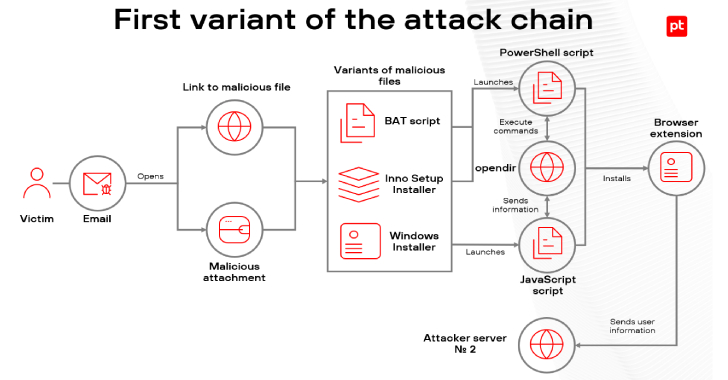
ITIL Compliance in a DevOps World: Reconciling Speed and Stability
In the ever-evolving landscape of IT and software development, two seemingly contradictory forces have emerged as dominant paradigms: ITIL and DevOps. On one hand, ITIL (Information Technology Infrastructure Library) is a framework that promotes stability, reliability, and compliance. On the other hand, DevOps is all about agility, speed, and innovation. How can organizations reconcile these two seemingly opposing philosophies? In this article, we’ll explore the challenges of achieving ITIL compliance in a DevOps world and discuss strategies for striking the right balance between speed and stability.
The ITIL Framework: A Brief Overview
Before diving into the complexities of integrating ITIL with DevOps, let’s understand what ITIL is all about. ITIL is a comprehensive set of practices and guidelines for IT service management (ITSM) that focuses on aligning IT services with the needs of the business. It aims to ensure that IT services are delivered efficiently, effectively, and consistently.
ITIL is known for its structured approach to IT service management, emphasizing processes, documentation, and compliance. It provides a framework for various IT processes, including incident management, change management, problem management, and more. The ultimate goal of ITIL is to deliver IT services that meet customer requirements while maintaining stability and minimizing disruptions.
DevOps: Speed and Innovation
DevOps, short for Development and Operations, is a cultural and technical movement that emphasizes collaboration and communication between development and IT operations teams. DevOps seeks to break down the silos between these traditionally separate groups to enable faster and more efficient software development and deployment.
One of the key tenets of DevOps is automation. By automating manual processes, organizations can achieve greater speed and consistency in delivering software updates and new features. DevOps also encourages a continuous integration/continuous deployment (CI/CD) pipeline, where code changes are tested and deployed rapidly.
The Challenge of ITIL Compliance in DevOps
At first glance, it may seem that ITIL and DevOps are fundamentally at odds. ITIL places a strong emphasis on documentation, change control, and compliance, while DevOps prioritizes speed and innovation. However, the reality is that many organizations are finding ways to reconcile these two approaches to create a DevOps culture that is also ITIL compliant.
One of the key challenges in achieving ITIL compliance in a DevOps world is striking the right balance between speed and stability. DevOps encourages frequent, small releases, while ITIL often advocates for more cautious, well-documented change management processes. Finding a way to deliver changes quickly without sacrificing stability and compliance is a complex task.
Strategies for Reconciling ITIL and DevOps
- Automation and Orchestration: DevOps and ITIL can coexist through automation. By automating routine tasks, organizations can reduce the risk of human error while maintaining compliance. This includes automating the creation of change requests, deployment processes, and incident resolution workflows.
- Collaboration and Communication: Successful DevOps implementations hinge on collaboration and communication. This principle can also be applied to ITIL compliance. By fostering better communication between development, operations, and compliance teams, organizations can ensure that changes are both fast and compliant.
- Change Control: Instead of discarding change control processes, adapt them to the DevOps model. Implement lightweight, agile change management processes that focus on risk assessment and impact analysis. Ensure that changes are thoroughly tested and monitored, and integrate these practices into your CI/CD pipeline.
- Documentation and Knowledge Sharing: While DevOps encourages informal communication and knowledge sharing, ITIL still places value on comprehensive documentation. Bridge this gap by ensuring that important information is documented and easily accessible to all team members. Use wikis, knowledge bases, or collaboration tools to facilitate documentation.
- Continuous Improvement: Both ITIL and DevOps advocate for continuous improvement. Encourage teams to regularly review and refine their processes. This can involve conducting post-implementation reviews, retrospectives, and incorporating feedback from both users and stakeholders.
- Compliance as Code: Embrace the concept of “Compliance as Code.” Just as infrastructure can be managed as code in DevOps, compliance requirements can be codified. This means that compliance checks can be automated and integrated into the deployment pipeline, ensuring that all changes meet the necessary standards.
- Training and Education: Invest in training and education for your IT and development teams. Ensure that everyone understands the importance of ITIL compliance and how it can be integrated into a DevOps environment. Promote a culture of continuous learning and improvement.
Conclusion
In today’s fast-paced digital world, IT organizations cannot afford to be solely focused on stability and compliance or speed and innovation. To remain competitive and responsive to customer needs, they must find ways to reconcile ITIL compliance with DevOps principles.
The key to success lies in embracing automation, fostering collaboration, adapting change control processes, documenting effectively, and continuously improving practices. By striking the right balance between speed and stability, organizations can achieve ITIL compliance in a DevOps world and reap the benefits of both approaches. In this way, they can ensure that their IT services are not only reliable and secure but also agile and responsive to the ever-changing demands of the business and its customers.
Contact Cyber Defense Advisors to see how we can tailor our ITIL compliance services to your needs.




